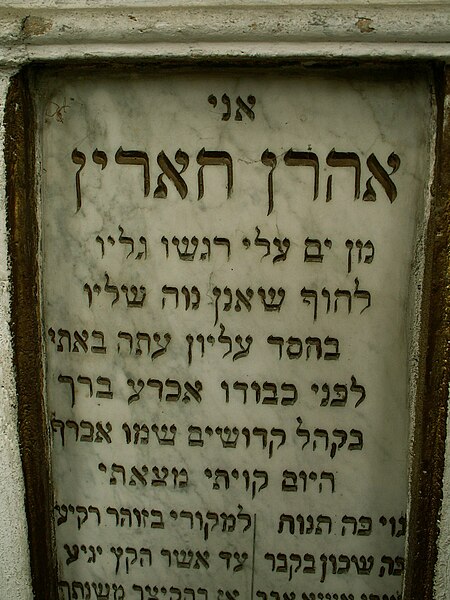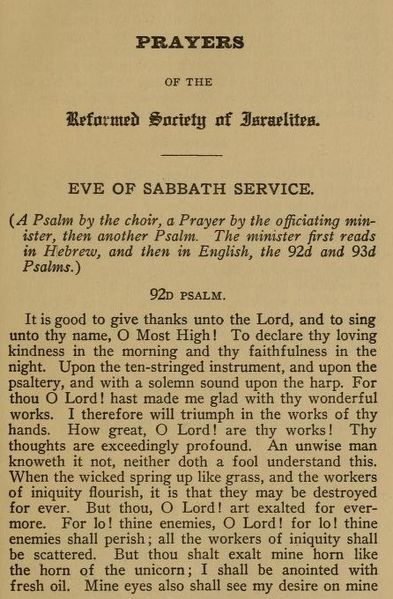Aaron Chorin was a Hungarian rabbi and pioneer of early religious reform. He favored the use of the organ and of prayers in the vernacular, and was instrumental in founding schools along modern lines. Chorin became a pivotal figure for reformers, although he himself still operated inside a traditional framework. He also interested himself in public affairs—he took an active part in the efforts for Jewish emancipation, and was very influential with the state authorities.
Aron Chorin
Upper part of the Inscription on his grave at the Jewish Cemetery in Arad
Lower part of the Inscription on his grave at the Jewish Cemetery in Arad
Reform Judaism, also known as Liberal Judaism or Progressive Judaism, is a major Jewish denomination that emphasizes the evolving nature of Judaism, the superiority of its ethical aspects to its ceremonial ones, and belief in a continuous revelation which is closely intertwined with human reason and not limited to the Theophany at Mount Sinai. A highly liberal strand of Judaism, it is characterized by little stress on ritual and personal observance, regarding Jewish law as non-binding and the individual Jew as autonomous, and by a great openness to external influences and progressive values.
The interior of Congregation Emanu-El of New York, the largest Reform synagogue in the world.
A segment of the 1818 Hamburg prayer book. Stating "accept the uttering of our lips instead of our obligatory sacrifices" and omitting the traditional "O gather our dispersions... Conduct us unto Zion" passage.
A passage from the Reformed Society's prayerbook, which was mostly in English and theologically more radical than Hamburg's.
Rabbi Samuel Holdheim, circa 1850.







